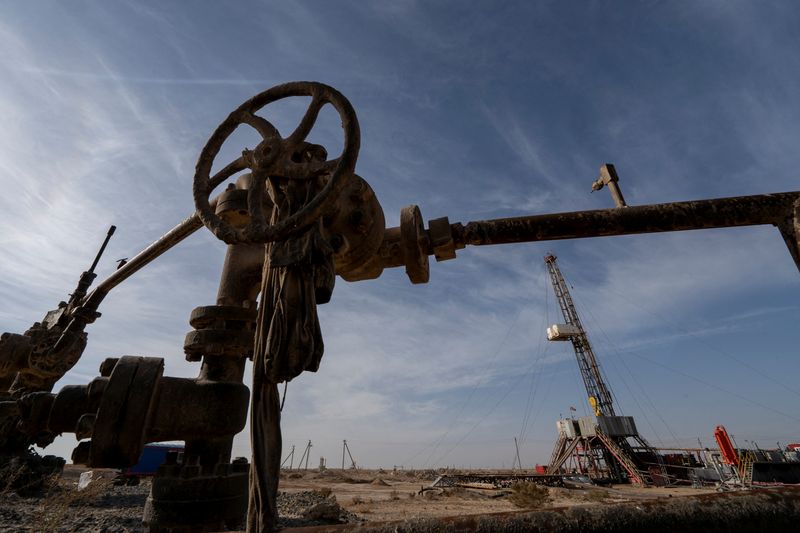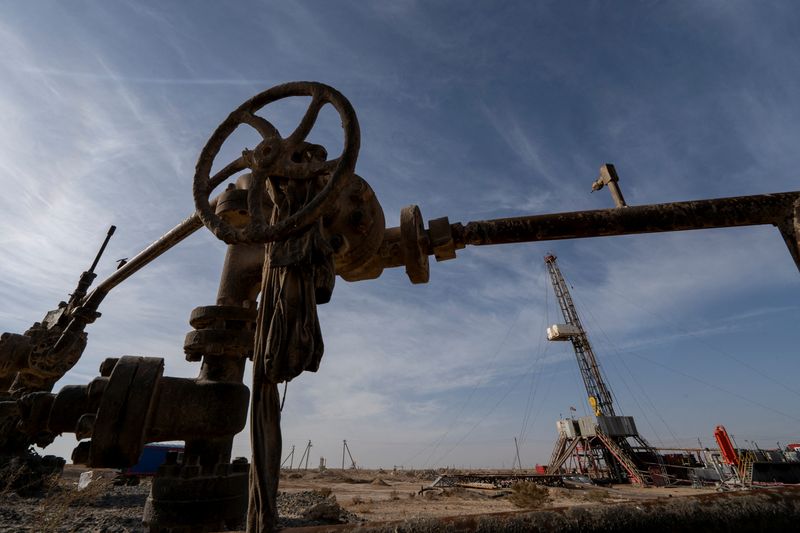
By Noah Browning
LONDON (Reuters) -Oil prices held steady on Friday but remained on course for a fourth successive weekly decline as signs of weak growth in global fuel demand outweighed fears of supply disruption in the Middle East.
Brent crude futures were up 18 cents, or 0.2%, at $79.70 a barrel by 1040 GMT. U.S. West Texas Intermediate crude futures rose 16 cents, or 0.2%, to $76.47.
Both benchmarks have lost more than 7% over the past four weeks in the longest run of weekly losses this year.
“Weak economic growth in major economies could stifle oil demand despite increased tensions in the Middle East that could impact supplies,” said Panmure Liberum analyst Ashley Kelty.
Economic data from top oil importer China and a survey showing weaker manufacturing activity across Asia, Europe and the United States raised the risk of an sluggish global economic recovery that would weigh on oil consumption.
Falling manufacturing activity in China also inhibited prices, adding to concerns about demand growth after June data showed imports and refinery activity lower than a year earlier.
Asia’s crude oil imports in July fell to their lowest in two years, sapped by weak demand in China and India, data from LSEG Oil Research showed.
Meanwhile. an OPEC+ meeting on Thursday kept the group’s oil output policy unchanged, including a plan to start unwinding one layer of production cuts from October.
“Crude futures were marginally higher early Friday … as demand concerns continued to tip the balance against supply worries stoked by a surge in Mideast geopolitical tensions,” said Vandana Hari, founder of analysis provider Vanda (NASDAQ:VNDA) Insights.

Oil investors are also monitoring developments in the Middle East, where the killing of senior leaders of Iran-aligned militant groups Hamas and Hezbollah stoked fears that the region could be on the brink of all-out war, threatening to disrupt supplies.
Lebanon’s Iran-backed group Hezbollah said its conflict with Israel had entered a new phase and pledged a response after its top military commander was killed in an Israeli strike.
This post is originally published on INVESTING.



